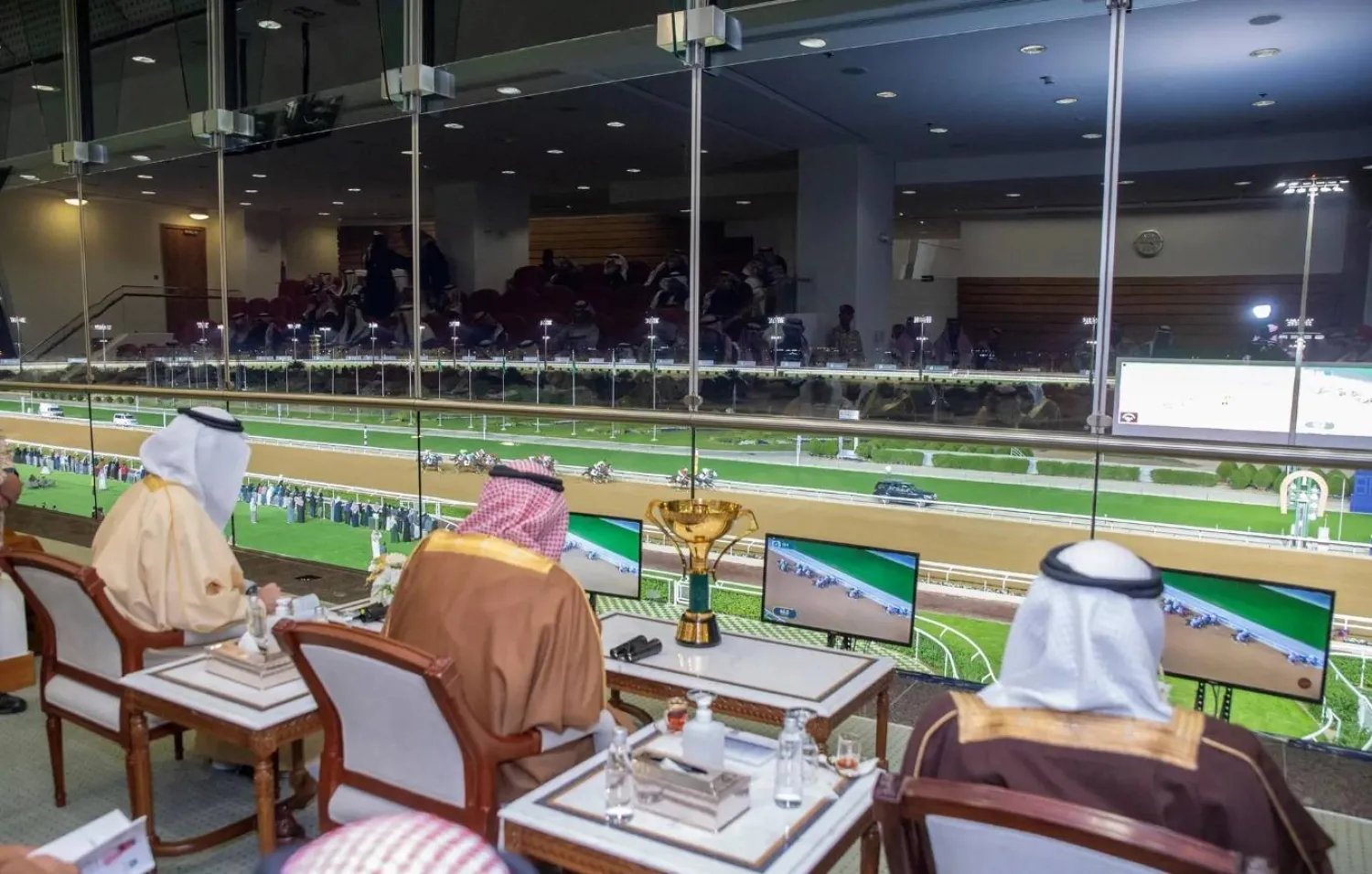Under the patronage of Prince Mohammed bin Salman bin Abdulaziz Al Saud, Crown Prince and Prime Minister, the Governor of Riyadh region, Prince Faisal bin Bandar bin Abdulaziz, attended on Saturday the first major races for the first category of the two Crown Prince Cups.
The races featured the “locally bred” horses and the internationally classified “produced and imported” open-grade race, held as part of the 78th ceremony of Riyadh Racing Season at King Abdulaziz Equestrian Field in Riyadh.
Upon arrival at the venue, Prince Faisal was received by Prince Miteb bin Abdulaziz Al Saud; Prince Bandar bin Khalid bin Faisal bin Abdulaziz, Chairman of the Board of Directors of the Equestrian Authority and Chairman of the Board of Directors of the Jockey Club of Saudi Arabia (JCSA); and Prince Saud bin Salman bin Abdulaziz.
The national anthem was played and the 11th round for the Crown Prince Cup in the “locally bred” horses’ category commenced, covering a distance of 2,400 meters with a prize of SAR1 million.
The horse “Al-Mubeer” clinched the top position, and the honor of receiving the trophy from Prince Faisal went to the horse’s owner, Naghemish bin Fahd Al-Ajmi.
The horse "May Frankel," owned by Prince Faisal bin Khalid bin Abdulaziz, secured victory in the 12th round of the internationally classified category of the Crown Prince Cup, covering a distance of 2,400 meters.
The cup is of special significance as it bears the name of the Crown Prince besides being the benchmark for the technical level for participation in other races.
Riyadh Governor Attends First Major Races for Crown Prince Two Cups

The races featured the “locally bred” horses and the internationally classified “produced and imported” open-grade race. SPA

Riyadh Governor Attends First Major Races for Crown Prince Two Cups

The races featured the “locally bred” horses and the internationally classified “produced and imported” open-grade race. SPA
لم تشترك بعد
انشئ حساباً خاصاً بك لتحصل على أخبار مخصصة لك ولتتمتع بخاصية حفظ المقالات وتتلقى نشراتنا البريدية المتنوعة







